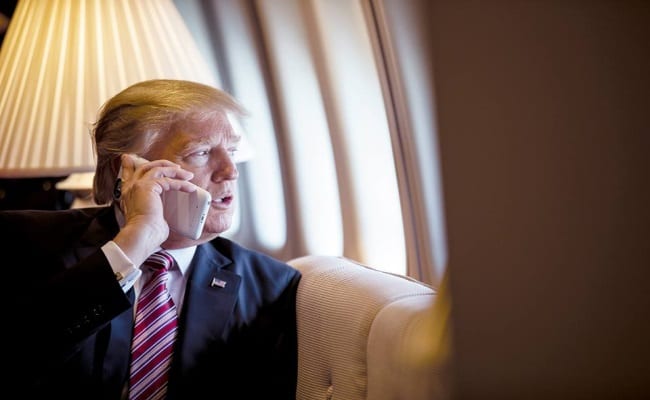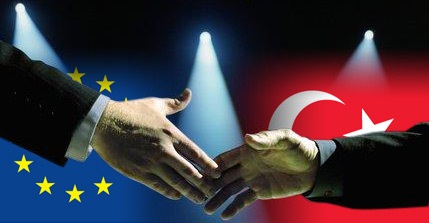Regional leaders want to work with President Trump.
By Ted Gover, Israel National News
The fledgling Trump administration’s Middle East policy has thus far shown to be a dramatic departure from his predecessor. Thus far, the Trump effect on the Middle East has been a recalibration of American relations with the region, moving away from the Obama Administration’s overtures towards Iran and returning to the traditional alliances with Israel, the Sunni Gulf states and with Egypt. Its focus has been on the following key areas:
Shoring Up Regional Allies
President Trump’s outreach to the Sunni Gulf states has rallied the Sunni Arabs against Tehran and sends a clear signal that Obama’s conciliatory approach towards Iran is over.
This marked change in Washington’s Iran policy has brought relief to the leaders of Israel and the Sunni Gulf States, both of whom had reservations about President Obama and what they believed to be a soft and dangerous policy towards Iran. These regional leaders want to work with President Trump who has billed himself as someone who will be tough on terror and who will take a hard line against Iran, their principal adversary.
It is no secret that the Sunni Gulf States and Israel want to work with the U.S. on better arms deals and upgraded security cooperation, and Mr. Trump’s recent trip to the region cemented in their minds that he is their partner.
Beyond this, the Trump administration is making efforts to repair political and security ties with longstanding ally Egypt after relations frayed during the Obama administration.
Israel
During Mr. Trump’s Israel visit, Israeli Prime Minister Netanyahu got what he wanted with commitments by Mr. Trump for enhanced cooperation with the U.S. on Israel’s security and geopolitical challenges. Prime Minister Netanyahu and President Trump also went out of their way to display a willingness to work with one another, a marked departure from the frosty relations that the Prime Minister had with President Obama.
The President’s visit to the Western Wall in the Old City of Jerusalem- – the first by a sitting U.S. president – – was an indication of America’s support for Israel and its way of life amid ongoing threats.
Additionally, the Trump administration has stepped up efforts to support Israel against the political attacks it faces at international forums like the United Nations. Outraged by the prior administration’s abstention from a UN vote condemning Israeli settlements, U.S. Ambassador to the UN Nikki Haley has take great pains to show her steadfast support of Israel.
Islamic State
President Trump has aggressively targeted IS positions with air power in Iraq where U.S. advisors continue to assist their Iraqi counterparts to defeat IS in the Battle of Mosul. Reports indicate that an attack on the IS capital in Raqqa has commenced with the U.S. providing air power, artillery, intelligence and other capabilities to the endeavor.
Mr. Trump has also devoted more resources towards fighting IS – – mostly with airpower – – in Libya, Africa and increasingly Afghanistan.
Syrian Civil War
The Trump Administration has shown that it is not inclined to become involved in the Syrian civil war with boots on the ground against Assad’s forces and partners. As Russia, Iran and Assad’s forces control most of Syria’s territory and air space, the U.S. lacks leverage in realizing desired outcomes in this prolonged war.
As a result, Washington’s involvement in the Syrian civil war has been relegated towards funding and training its own proxies, pursuing diplomatic outcomes and conducting occasional strikes on Assad when its military threatens U.S. forces in the country or when chemical weapons are used against civilian populations.
Iran
Mr. Trump has pulled back from former President Obama’s engagement with the regime in Tehran. While he did not live up to his campaign promise of ripping up the nuclear agreement with Tehran, President Trump has taken a hard line against the country and has imposed additional sanctions. His appointment of Jim Mattis, a well-known Iran hawk, as Secretary of Defense, is one indication of Mr. Trump’s belief that Mr. Obama became too friendly with Iran and that its power in the region needs to be checked.
Additionally, Trump has sought to support Middle East allies who are under assault by Iran’s proxies, the largest example being the sitting Yemeni government and Saudi Arabia against the Iran-funded Shia Houthi rebels in their attempt to overthrow the government in Sana’a.
In sum, the young Trump administration has implemented a number of marked changes to President Obama’s Middle East policies, most notably a realignment with traditional partners amid efforts to blunt Iranian behavior in the region as well as a ramping up of efforts to defeat the Islamic State.
Ted Gover, Ph.D. is Instructor of Political Science at Central Texas College, Camp Pendleton, California.



















